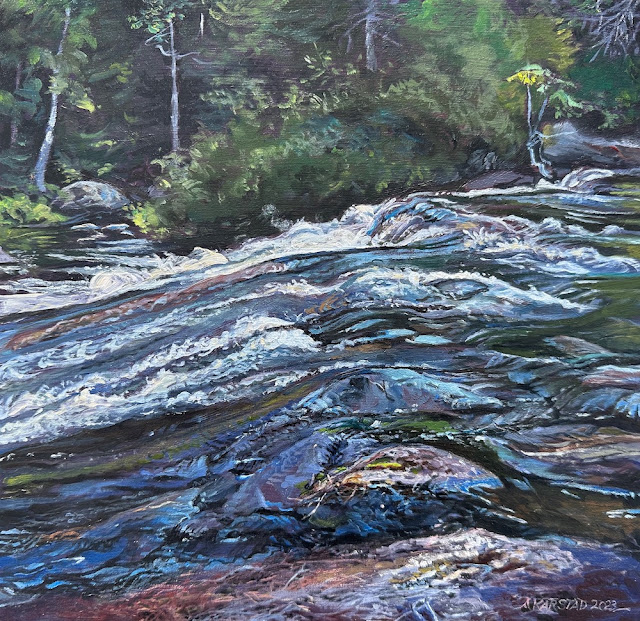Cepaea shells in tunnels
April 7, 17:30
Fred called us down the road a little way to a discovery he'd just made while checking for the big banded Cepaea land snails that hibernate at the edge of the ditch across from the Pentecostal church.
He wrote in his journal:
I decided to pull up the grass along the metre of the bank where we'd found the most last year, but I only turned up a few dead shells along most of the metre. But when I got to a little notch in the shore where I'd found some dead shells last year, there were a lot of dead shells, and as I pulled them out and felt further in, there were yet more shells. By the time I'd pretty well come to the end of two 30cm burrows, about 6cm diameter, and a big central chamber, about 10cm diameter and packed full of shells, and a central burrow about 40 cm into the bank, I had about 2 litres of shells, with a few living snails admixed. All were Cepaea nemoralis.
This certainly looks like the accumulated shells left by a predator -- but which one and how does it get the snails out of the shell without breaking the shell? Blarina Shrews? Starnose Moles? Is this most of the population along here eaten up, so that there won't be many this summer? Is the mortality somehow the result of the soil's being unfrozen all
winter? There are certainly a lot of small mammal burrows being revealed as the winter-long heavy snow melts.



Comments
Post a Comment
What do you think of this painting, and what do you know about the subject that I have painted?